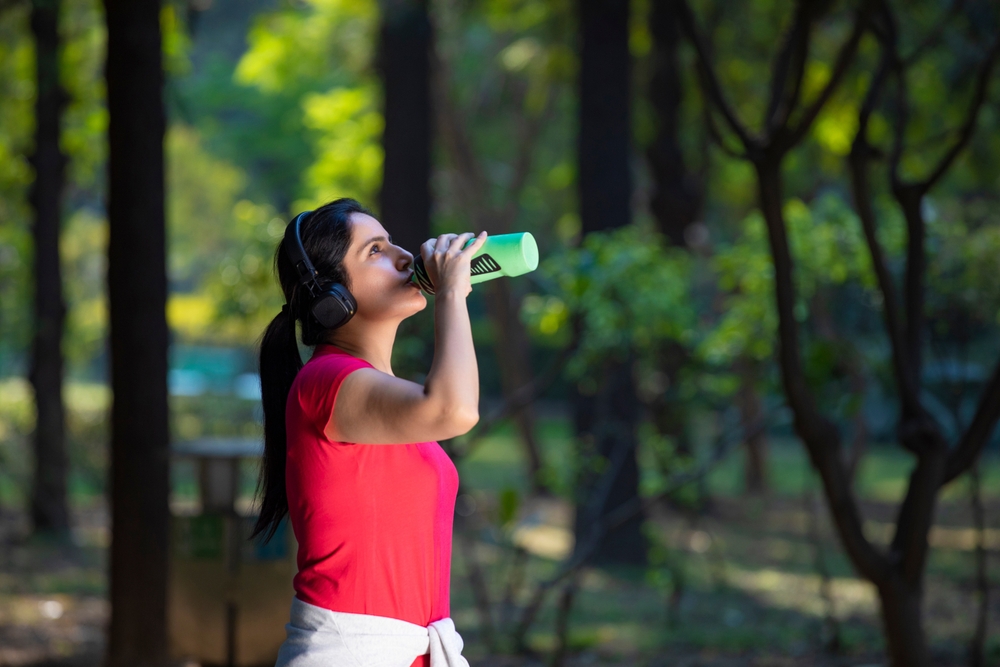Have you ever asked yourself, “Am I drinking enough water?”
The answer is critical, bearing significant implications for your physical health, mental wellbeing, and overall lifestyle. As it turns out, the question of water intake is not as straightforward as it might seem. Our needs for this vital liquid vary greatly, influenced by numerous factors from age to climate and activity level.
How Much Water Do We Actually Need?
A common myth suggests that drinking eight glasses of water a day is a catch-all rule. Yet, scientific evidence paints a more nuanced picture. Individual water requirements can fluctuate substantially based on a host of factors.
According to the National Academy of Medicine, a recommended daily fluid intake of approximately 13 cups (104 ounces) for men and 9 cups (72 ounces) for women is suggested, with 1 cup equaling 8 ounces.
These amounts serve as general guidelines and not strict daily targets. Individual fluid needs can vary based on factors such as physical activity levels, exposure to warm climates, and body size. It’s important to recognize that drinking less than the recommended amount does not necessarily compromise one’s health, as each person’s exact fluid needs can differ even on a day-to-day basis.
For example, a sedentary adult living in a temperate climate may need about 2.5 litres of water daily. However, an active individual or someone living in a hot climate might require up to 4.5 litres.
Drinking water is not the only means of meeting these needs. Our diets play a crucial role in maintaining hydration levels.
Hydration Heroes: Foods High in Water Content
In addition to drinking water, incorporating water-rich foods into your diet can play a significant role in meeting your daily hydration needs. These hydration heroes, such as cucumbers, tomatoes, watermelons, and oranges, are not only delicious but also packed with high water content.
Cucumbers, for instance, consist of approximately 96% water, while juicy watermelons are made up of about 92% water. Tomatoes and oranges are also excellent choices, with water contents of around 94% and 87%, respectively.
Including these hydrating foods in your meals and snacks can contribute to your overall hydration, keeping you refreshed and nourished throughout the day.
The Sneaky Diuretics: Foods That Can Increase Urination
While proper hydration is essential, it’s important to be aware of certain foods that can have a diuretic effect, increasing urine production and potentially leading to dehydration if not compensated for.
Some foods, such as caffeine-rich beverages like coffee and tea, as well as alcoholic beverages, can act as diuretics. These substances stimulate the kidneys to produce more urine, potentially causing increased fluid loss.
While these diuretic foods and beverages can contribute to your overall fluid intake, they should not be solely relied upon to meet your daily hydration needs, as their diuretic effect may offset their hydrating properties.
The Many Benefits of Drinking Water
When you keep your body adequately hydrated, you unlock a wealth of health benefits. Water assists with vital bodily functions, from regulating body temperature and aiding digestion to lubricating joints and flushing out toxins.
Furthermore, consuming enough water can lead to improved mental clarity, more radiant skin, and enhanced athletic performance.
The Psychological Impact of Hydration
The relationship between hydration and mental health is a burgeoning field of study. It has been observed that maintaining optimal hydration levels can significantly influence mood and cognitive functions.
Maintaining the Hydration Balance
While understanding the benefits of hydration is crucial, it’s equally important to note that balance is key. Over-hydration, consuming excessive amounts of water, can lead to a condition known as water intoxication or hyponatremia, which can be as harmful as dehydration.
Maintaining a balanced water intake is therefore crucial. To achieve this, listen to your body’s thirst cues, engage in regular physical activity, and consume a diet rich in high-water-content foods.
Drinking Water, Wellbeing, and You
Understanding your daily water needs is not just a matter of quenching your thirst. It is a fundamental aspect of managing your health and wellbeing, impacting every area of life, from physical fitness and skin health to mental clarity and mood.
Staying aware of your hydration habits, noting if you’re drinking less than required, and taking steps to balance your intake can make a world of difference. In the grand scheme of your health, the water you drink plays a pivotal role. Hydrate smartly, live actively, and enjoy the countless benefits that come with maintaining optimal hydration levels.
Key Takeaways
- Individual water needs can vary based on age, gender, activity levels, and climate.
- In addition to drinking water, high-water-content fruits and vegetables can contribute to your daily hydration needs.
- Both over-hydration and dehydration can lead to serious health problems.
- Maintaining optimal hydration can have beneficial effects on physical health and mental wellbeing.
- Staying mindful of your hydration habits and making necessary adjustments can significantly improve your health and lifestyle.
References:
- Institute of Medicine. 2005. Dietary Reference Intakes for Water, Potassium, Sodium, Chloride, and Sulfate. Washington, DC: The National Academies Press. https://doi.org/10.17226/10925.
- Popkin BM, D’Anci KE, Rosenberg IH. Water, hydration, and health. Nutr Rev. 2010 Aug;68(8):439-58. doi: 10.1111/j.1753-4887.2010.00304.x. PMID: 20646222; PMCID: PMC2908954.












